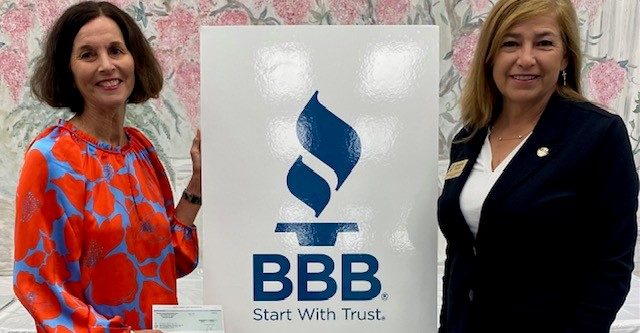This holiday season, we have a suggestion: Check on your parents. Or grandparents. And make sure everything is OK.
Holidays are about family time, but 2020 is decidedly different. Social distancing will be the norm. Unfortunately, scammers don’t follow the rules. And that puts seniors at even more risk.
Cold, hard numbers bear that out. According to Protecting Older Consumers 2019-2020: A Report of the Federal Trade Commission (FTC), adults 60 and over are more likely to be victims of fraud – and less likely to report cases to authorities. The FTC points out that the risk gets worse as people age. The FTC also reports that adults age 80 and older suffer the biggest losses, with a median reported loss of $1,600.
It gets worse. Adults aged 60+ are six times more likely to be the victims of tech support scams; they are three times more likely to report losses due to prize, sweepstakes and lottery scams; and this demographic is twice as likely as young adults to report financial losses due to impostor fraud.
“Always keep in mind, these people are trying to bait you in to giving them information,” said Jon Kucharski, fraud strategy manager at Regions. “The best strategy is to ignore them. For example, if you respond, ‘You’ve got the wrong guy,’ to an unsolicited text message, the person on the other end knows they’ve a got a live phone number. These people are making a lot of money because people respond.”
You can protect grandparents – and yourself – by recognizing these four signs of potential fraud:
- Scammers pretending to be from known organizations – With new technology, numbers can look official on Caller ID. But the IRS, Social Security and Medicare aren’t going to call you and ask for personal information. And a tech company won’t offer to fix the problem they “just discovered” remotely on your computer.
- Scammers calling with a problem, or a prize waiting for you – Again, the government isn’t going to call out of the blue. Nor will a legitimate official tell you to send money to get a loved out of a legal scrape you knew nothing about. A sweepstakes company won’t call you saying you’re the grand prize winner, and only need to pay a nominal fee to receive your jackpot.
- Scammers pressuring you to act immediately – They may tell you if you don’t send money or act right now, they’ll have you arrested or sued. The threats don’t end there. They could threaten to take away your business license or deport you. And in one of the latest technology scams, they’ll threaten to take over your computer if you don’t respond.
- Scammers insisting you pay in a specific way – To get out of trouble, you can send a money transfer or a gift card. Or they’ll insist they’ll send a check for you to deposit. In return, you send them money.
Jeff Taylor, Regions’ head of commercial fraud forensics, points out that there are obvious reasons why scammers exploit seniors more effectively.
“Seniors are targeted because they’re available and they’re at home,” Taylor said. “In some cases, they may have hearing impairments and may not understand all they’re hearing. And many are not as technologically savvy.”
Despite all these scams, stopping fraudsters is simple. Share these tips with your parents, grandparents – in fact, anyone you care about:
- Block unwanted phone calls and filter unsolicited texts – They can’t get to you if you don’t respond. And if you see an unfamiliar number, don’t answer.
- Don’t give out personal or financial information to someone you don’t know – Legitimate organizations, including banks, won’t ask you for that information in a phone call, text or email. If you really think the call was legit, look up the organization, find a real phone number and make the call yourself to confirm.
- Take a deep breath – No matter how urgent the matter is according to the person on the other line, don’t act immediately. Someone reaching out for legitimate purposes will give you ample time to fix the problem.
- Stop and talk to someone you trust – That’s what family and friends are for. Tell them what happened and, together, decide if you are being scammed.
Learn the scams and steps to take – and keep – loved ones safe. If all else fails, report fraud and help others avoid the same fate at this website: https://reportfraud.ftc.gov.
Stay on top of fraud prevention with the new resource page from Regions at www.regions.com/fraudprevention.
The information presented is general in nature and should not be considered, legal, accounting or tax advice. Regions reminds its customers that they should be vigilant about fraud and security and that they are responsible for taking action to protect their computer systems. Fraud prevention requires a continuous review of your policies and practices, as the threat evolves daily. There is no guarantee that all fraudulent transactions will be prevented or that related financial losses will not occur. Visit regions.com/stopfraud, or speak with your banker for further information on how you can help prevent fraud.
(Courtesy of Regions Bank)













